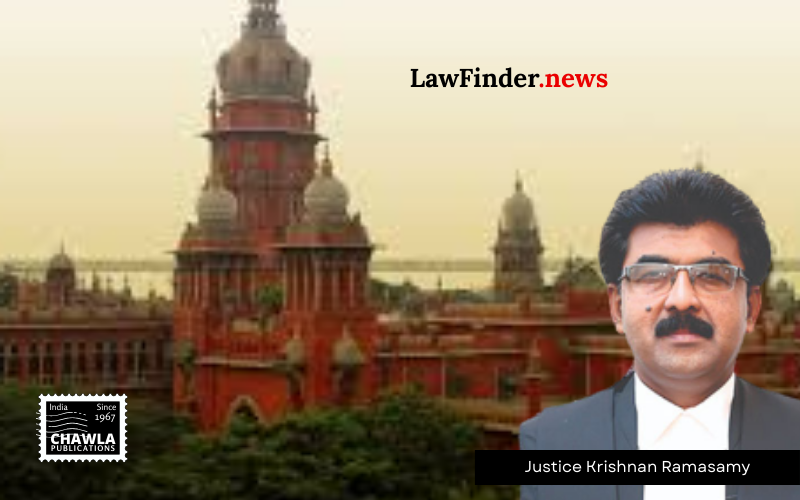Madras High Court Upholds Income Tax Proceedings Against KLP Projects Pvt. Ltd., Dismisses Limitation Plea
In a significant judgment delivered on March 28, 2025, the Madras High Court dismissed the writ petitions filed by M/s KLP Projects Private Limited against the notices issued by the Assistant Commissioner of Income Tax, Central Circle 3(1), Chennai. The court upheld the validity of proceedings initiated under Section 153C of the Income Tax Act, 1961, emphasizing that the limitation period for issuing notices in cases involving "other persons" starts from the date of receiving the books of account, documents, or assets seized or requisitioned by the Assessing Officer, and not from the date of the search or issuance of a show cause notice.
The petitioner, M/s KLP Projects Private Limited, challenged the notice dated December 30, 2024, and the subsequent order dated March 13, 2025, citing that the proceedings were barred by limitation. The company contended that the limitation period should be reckoned from the date of the issuance of the show cause notice, as per their interpretation of the Supreme Court's judgment in CIT v. Jasjit Singh.
However, Justice Krishnan Ramasamy, presiding over the case, rejected the petitioner's argument and clarified that the limitation period of six years begins from the date the materials are received by the Assessing Officer from the "other person." In this case, the search was conducted on November 10, 2020, and the materials were collected from the petitioner on June 30, 2022, making the issuance of the show cause notice within the permissible limitation period.
The court also addressed the issue of prior settlement with the Interim Board for Settlement (IBS), where the petitioner argued that the settlement barred further proceedings by the department. The court ruled that the settlement does not preclude the department from initiating fresh proceedings if new material is found subsequently. Thus, the liberty granted to the department to proceed further was upheld.
Justice Ramasamy further noted that the petitioner's reliance on the Delhi High Court's judgment in Omaxe Ltd. v. Assistant Commissioner of Income Tax was inapplicable in the present scenario, as the settlement with IBS did not bar the department from acting on new evidence.
In conclusion, the Madras High Court dismissed the writ petitions filed by M/s KLP Projects Private Limited, granting them 30 days to file a reply to the show cause notice issued by the department. The decision underscores the procedural compliance required under the Income Tax Act and clarifies the scope of limitation periods under Section 153C, reinforcing the department's authority to act on new material even after a prior settlement.
This judgment serves as an important precedent for cases involving interpretation of limitation periods under the Income Tax Act, particularly for proceedings against "other persons" under Section 153C.




